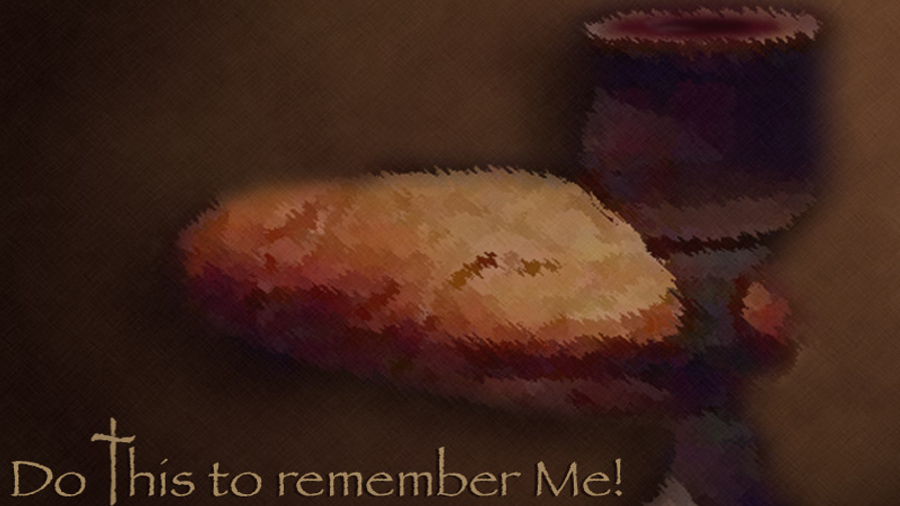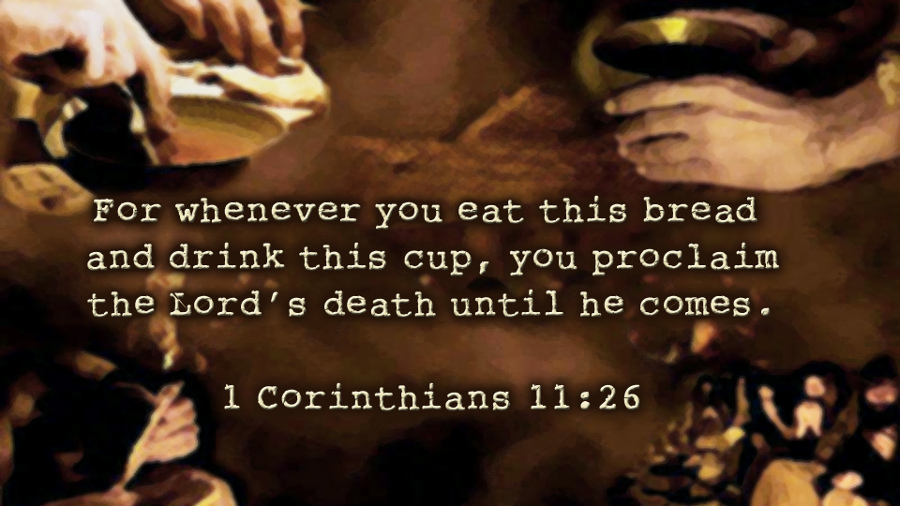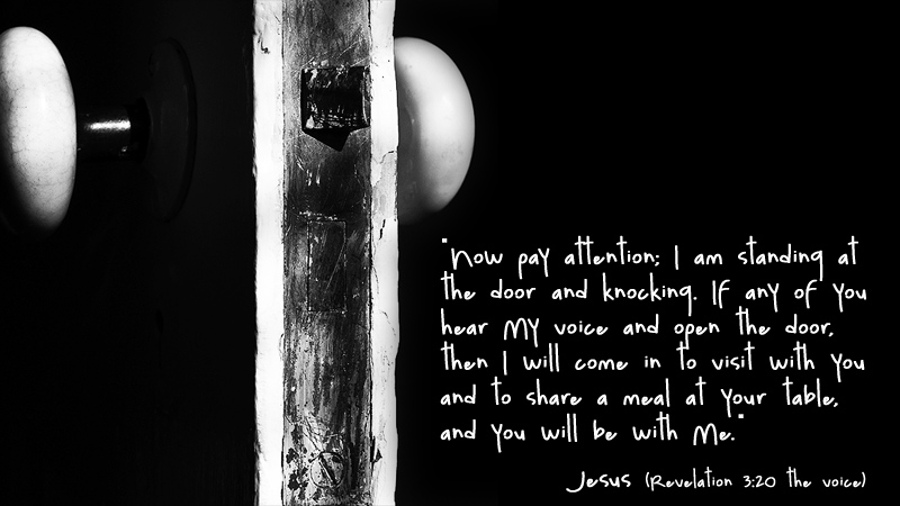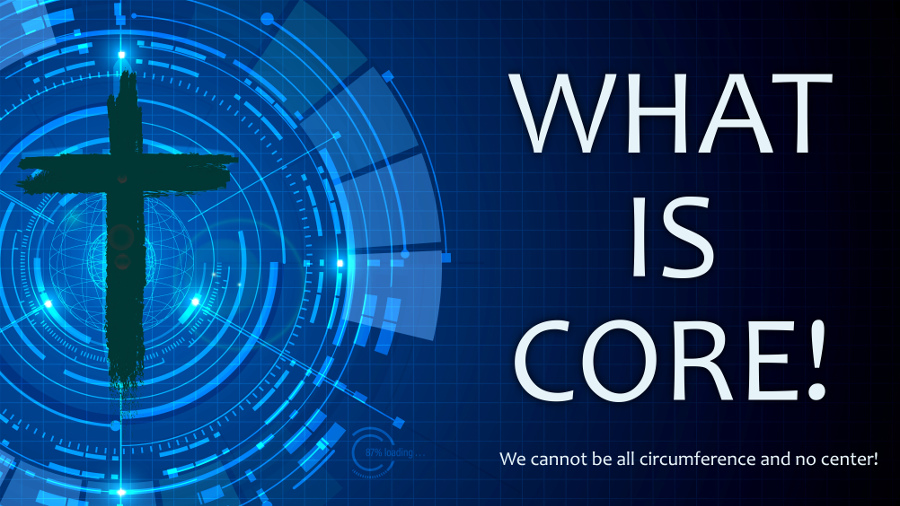Breaking bread.
The Supper.
Communion.
The Lord's Supper.
The Eucharist.
Holy Communion.
This very simple but extraordinarily special meal means so many things to so very many people, from a variety of cultures, all around the world. Amazingly, the New Testament says very little about it. Remove the Last Supper of Jesus with his closest followers right before his deathONE from the discussion, and there is even less said than most of us would imagine.TWO Unfortunately, what is found in the New Testament is often more debated than appreciated or cherished.
In our little series on "What is CORE"THREE we are tying the celebration, remembering, and anticipation found in Communion to two of the primary anchor passages for us as followers of Jesus:
- Christ died for our sins according to the Scriptures, he was buried, and he was raised on the third day according to the Scriptures (1 Corinthians 15:3-4).
- We are to love God with all that we have and all that we are, and we are to love our neighbors as we love ourselves (Matthew 22:34-40).
Not surprisingly, when we examine the key passages that focus on The Supper, we find these two areas of emphasis built into our sharing of this simple common meal of faith. (Please note: Rather than intersperse the statements below with Scripture references, the key passages are at the end for you to study.)
- We participate in Jesus' death, burial, and resurrection through The Supper remembering, sharing, and declaring what Jesus has done for us.
- Our communion in The Supper is not just with the Lord who promised to be present with us. We also share in this time at the table with each other, our brothers and sisters for whom Christ died, and we are woven together as Jesus' Body, his bodily presence in the world.
Remembering Jesus' death is a focus of The Supper. The Lord began this simple spiritual feast on the night he was betrayed as he awaited the agony of the cross. The bread and wine of this meal became more than bread and wine for Jesus' followers. They saw them as the body and blood of the Lord given for the forgiveness of their sins!

The earliest followers of Jesus appear to have celebrated The Supper at least every Sunday, the first day of the week, and the day of his resurrection (Acts 2:42, 46, 20:7; 1 Corinthians 11:26). Yet as often as they celebrated The Supper, and wherever they shared it, they remembered Jesus' death in anticipation of his coming again! Rather than something sad and morose, these earliest believers shared in this time together "with glad and generous hearts." They recognized that their sins were forgiven, their community formed, their victory over sin and death assured, and their Savior would return for them!
Jesus anchored The Supper, as did the apostle Paul, in the Lord's death, burial, and resurrection — the things of first importance and the basis of saving faith (1 Corinthians 15:1-7).
Paul emphasized the strong call in The Lord's Supper for each of us to examine ourselves and our relationship with the Lord. Paul's call echoed Jesus' challenge to his closest followers. At the Last Supper, Jesus lovingly confronted the twelve about their lack of faithfulness.
Still, the Lord's Supper is not an individualistic feast where we focus only on ourselves. We examine ourselves in the presence of other followers of Jesus. These are our brothers and sisters who love the Lord and yet struggle to be faithful just like we do — and just like the original apostles did!
The very name "Communion" suggests community, gathering to commune with one another around a central focus. The body we recognize and discern as present among us is not just the body of Jesus present in the bread and wine — the body pierced by nails, thorns, and a spear at Golgotha. Those of us who share in this one bread are made into the one living and present body of Jesus in the world.
We should have a sense of concern and connection as the followers of Jesus. We should wait on each other as we discern and recognize each other as valuable parts of Jesus' Body. We are a gathering of brothers and sisters for whom Christ died. We share this meal with each other as recipients of grace, the adopted children of God. We recognize that we are co-heirs of heaven's glory with Jesus, our older brother who paid the price for our adoption. We do it as a family, in a family meal, not as isolated units trying to be separated and detached while trying to block out each other's presence, problems, and needs.
Few things could be more anchored in our loving God for his indescribable gift of Jesus and our loving others than The Supper!

However, with our religious traditions and denominational bickering, many of us settle into our familiar practices of "doing" The Supper. Our normal way is comfortable for us. We know what to expect. So, we can resist other aspects built into The Supper. Since his simple feast is our touchstone experience of What is CORE, we must not let our way become a predictable and stale way, devoid of mystery and unaware of the presence of Jesus.
Shouldn't we all move out of our guarded familiarity with the way we "do" The Supper and accept Jesus' invitation to experience something deeper, something richer in this gift of Communion?
Dare we relegate it to little more than an afterthought relegated to a routine we do quickly so we can get to the main part of our worship?
If The Supper is our participation in what saves us, as well as a time we expect Jesus to be present with us, then shouldn't we do more than include it in our worship times than a few times per year?
Do we really want to push aside the mystery, wonder, and sacred blessings Jesus has for us in his Supper with us?
I encourage you to go back and read the relevant passages below — you can click on the Scripture references, and they link to those passages for you to read. Take time with your small group, your family, your fellow church leaders, and other believers to study through the passages. Notice how these passages are rooted in what is most important about our faith. Recognize the promise that Jesus will be present with us. Enter the mystery of grace: we not only take bread and wine, but we also participate in the saving body and blood of the Lamb of God, our Savior, as the Lord forms us into his bodily presence in the world.
Let's look for ways to genuinely honor Jesus and the community he gave his life to purchase; let's emphasize The Supper as a dynamic part of our faith life. Let's ask the Holy Spirit to guide us into a deeper and broader experience of our Lord as we commune together as his body. Most of all, hear his words of invitation:
"I have earnestly desired to eat [this meal] with you all" (Luke 22:15).
Let's accept our Savior's invitation and meet him at The Table!

Which brings us back to the questions we are asking each week:
- Do I believe this?
- Do I let this change who I am?
- Do I let this guide me to what is important in life, in fellowship, in worship, and in doctrine?
How can I not when I've been loved so graciously by God?
- Matthew 26:17-35
- Mark 14:12-31
- Luke 22:7-38
TWO Here are the references to the Lord's Supper and "breaking bread" that probably includes The Supper:
- Acts 2:41-47
- Acts 20:7-12
- 1 Corinthians 10:14-22
- 1 Corinthians 11:17-34
- Jude 1:12 (this one is uncertain, but the love feast appears in church history tied to the Lord's Supper.)
Which brings us to the questions we want to ask each week of our series:
- Do I believe this?
- Do I let this change who I am?
- Do I let this guide me to what is important in life, in fellowship, in worship, and in doctrine?
How can we not?

- Jesus!
- Believing
- Disciple-making
- Going
- Baptizing
- Training
- Loving
- Communing
- Worshiping
- Finishing
Special thanks for the use of images related to Jesus' ministry from The Lumo Project and Free Bible Images.










Reader Comments
Archived Facebook Comments